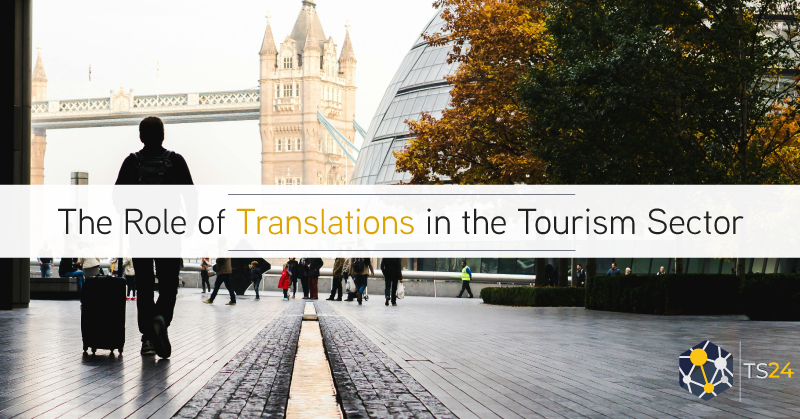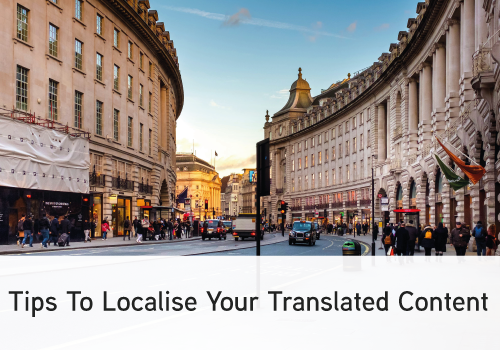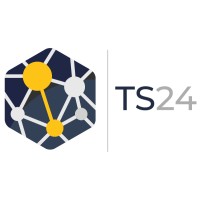The crucial role of effective translations in the tourism sector
Do you run a transportation company or a hospitality business and are excited to welcome tourists from around the world? If yes, working with an expert translation services agency to ensure your content is accurately translated, relevant and carefully localised to the preferences of your global audience is essential.
The world has finally fully opened after the painful wave of Covid-19. Tourism is at its peak as international travel is expected to reach 80% to 95% of pre-pandemic levels in 2023/2024.
If you are not benefiting from all this, it’s time to perhaps reconsider your business goals. The tourism sector relies heavily on effective translations. Professional translations of brochures, travel guides, and other promotional materials facilitate communication with potential tourists, making it easier for them to plan their trips. With the rapidly increasing diversity of tourists’ language backgrounds, it is essential to have high-quality translations to avoid misunderstandings and ensure a positive experience for all visitors.
EXPERT’S TIP: Do you need to translate technical materials? Make sure to read our translators’ latest guide!
The Role of Translation Services in the Tourism Industry
In this digital world, the role of solid content is undeniably matchless. It can not only help you drive sales but also give you customers from various regions.
However, all of this is not achieved until your content speaks the language of the locals. While English is a universal language, there are many tourists who still don’t understand it. As a result, they don’t know much about the services you may have presented on your website.
So, what’s the way out? It is simple! Professional translation services can elevate your tourism-related services any day. In fact, tourism is one of the industries which is mostly dependent of translations.
By translating your marketing content into languages your target audience mostly speaks and understands, you can quickly grab their attention and convince them to be your consumers.
The internet has made this big world really small. A simple search tells you about a specific holiday spot thousands of miles from your current location. However, that’s just a tiny detail to know about.
Before you visit the location, you should know the booking procedure, food options nearby, and areas to see. All this information must be available in your native language so you can decide whether to travel or not.
To sum it up, translation and tourism should go hand in hand to facilitate as many travel enthusiasts as possible. But what should you consider when choosing the correct language for your content?
Translation of Your Travel Website in the Perfect Language
Whether you want to translate your website, magazine, maps or blog posts, you must do it in a language many people can easily resonate with. But how should you pick it?
Collect data to know about the origin of most of your travellers. Find out where exactly they are coming from and the languages they usually speak. This information can help you focus on that particular language when translating your content.
But suppose you are unable to pick one language. In that case, what should you do?
You can shortlist the most common languages spoken worldwide to see which one generates the most conversions and traffic. You can create a multilingual tourism website, letting people from various origins know about your content and services.
While designing multilingual sites is a challenging task, it can reap incredible benefits within a short time. For instance, such a website can help you reach out to 75% more internet users who speak languages other than English, meaning that all the pain that comes in while creating one is definitely worth the effort.
But more than a translated website is needed to attract travellers. You should also localise your content, such as ads, blogs and other relevant social media, to help the right travellers know about your services.
EXPERT’S TIP: Do you need to translate and certify your official documents? Visit our page dedicated to certified translation services!
How to Localise Your Content?
While around 75 billion people speak English worldwide, it’s surprisingly the first language of less than 400 million people globally. This is why localisation services are imperative to reach more prospects through their local language and stay ahead of your competition.
For this task, it is best to have a translation service agency on board to translate and localise your content accurately. They will know everything about the process.
But while they get busy making your business international, consider a few elements essential to cover all bases while building content for a wider audience.
1. Focus on Imagery
Do you want to get your travel message across to various people? If yes, use culturally appropriate images in your content that are more symbolic than people-based.
If that’s difficult for you, get help from your professional translation service agency to shortlist some images on your behalf.
2. Localise Currency
Don’t just translate the words. Focus on the currency and other measurement units, too. This is imperative to show that you care for your customers’ smooth shopping experience.
Whether you run a booking site or a hotel, giving your consumers the option to see the final rates of your services or products in their local currency allows them to feel important and worthy. Besides, this small initiative saves them the hassle of doing the complicated math themselves.
3. Make Your Hospitality Content Stand Out
If you are a part of the hotel industry, work on and localise your hospitality content. For instance, localise your menu, weather and safety information, check-in forms, and even WiFi details, if possible.
This practice makes your customers feel comfortable. Besides, your staff also feels at ease when interacting with a multilingual audience.
4. Rephrase to Adjust Your Content
Now, this is crucial. Here is an example to help you understand this point.
Suppose you want to translate the Portuguese CTA, call-to-action “Mais informações” into English. This two-word phrase in English translates as “Learn about upgrade options”.
The latter is a four-word sentence and takes more space than the two-word phrase in Portuguese. Instead of using it and ruining your website’s look, rephrase and simplify it so it looks as good as before.
As long as the sentence’s meaning remains the same, you can make appropriate adjustments to retain the structure of your site.
EXPERT’S TIP: Learn more about the value of professional translations in the Medical sector in our latest guide!
Raise your hands if you have understood the role of translation in creating tourism-friendly platforms for travel enthusiasts worldwide. Regardless of your industry, if your primary consumers don’t speak a common language, you must try to localise your content and create multilingual sites to serve them well.
The good thing is that you don’t have to do all this alone. Thankfully, translation service agencies in the tourism sector can professionally cater to all such demands, saving you lots of money and time to achieve your goals.
About Translation Services 24
Translation Services 24 (TS24) is a leading translation services agency providing expert services in over 200 languages. We work with clients in all corporate and public industries and specialise in sector-specific linguistic solutions. With over a decade of experience in the industry, 15+ million words converted every year and 100,000+ projects completed, TS24 is a leading provider of expert translations and interpretation services and an officially certified member of the ATC. Contact TS24 here. You can also read all of our recent articles here.
Follow Translation Services 24 on Social Media







